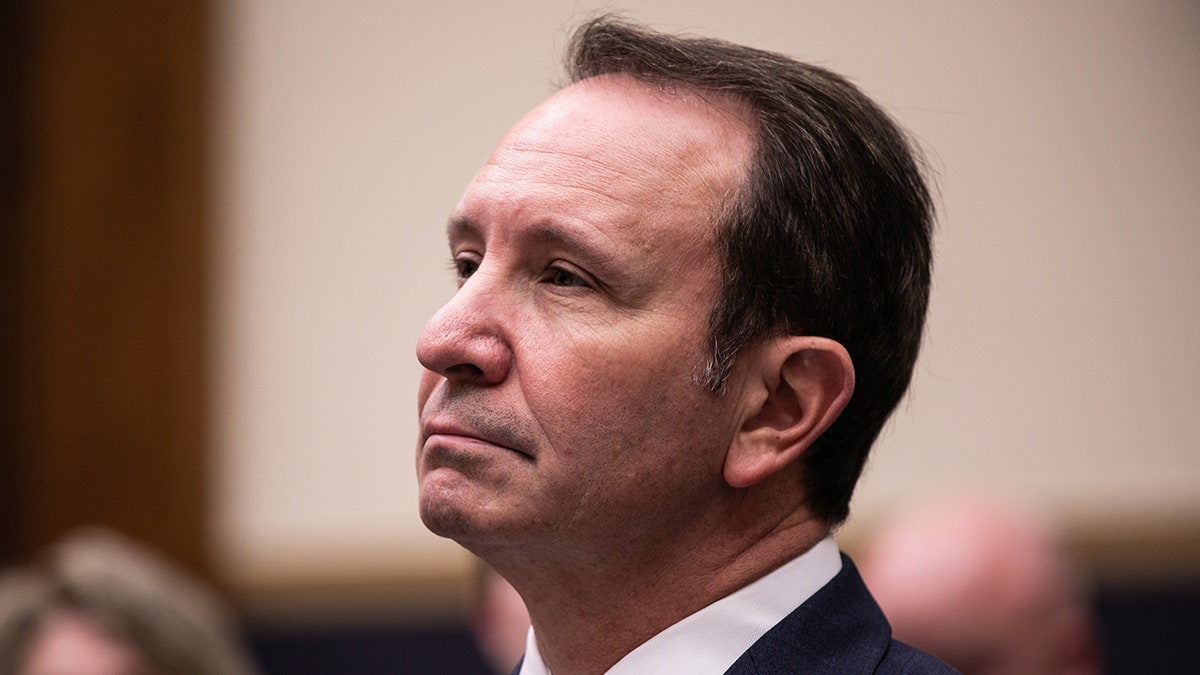Fox News Flash top headlines for May 28
Fox News Flash top headlines are here. Check out what's clicking on Foxnews.com.
A proposed Louisiana Senate bill allowing judges to sentence convicted child rapists to surgical castration may become law.
Reversible chemical castration through medication is already approved as a criminal punishment in the state, but earlier this month, the House of Representatives passed Democratic Sen. Regina Barrow's bill by a vote of 74 to 24, which would take the punishment a step further.
The law would allow judges to order the procedure for men or women who have committed an aggravated sexual offense against a child under 13, assuming that they are a viable candidate. The procedure would take place no less than one week after a convicted person finishes their prison sentence. If they don't show up or refuse, per the proposed bill, they could be sentenced to an additional three to five years behind bars.

Louisiana Gov. Jeff Landry will decide whether SB371, which would allow judges to sentence child sex offenders to surgical castration, becomes law. (Valerie Plesch/Bloomberg via Getty Images)
"We have to stand and fight for the children," Democratic Rep. Delisha Boyd said when carrying the bill to the House, according to the Louisiana Illuminator.
Boyd cited reports of a 51-year-old Baton Rouge man recently arrested for the alleged rape of a 12-year-old girl. The man was already on the sex offender registry after a previous offense in 2007, suggesting that the proposed bill could thwart repeat sexual predators.
The House approved the bill on several conditions, most notably that offenders younger than 17 would be excluded from the harsh new punishment, the outlet reported. Provided that the Senate approves the changes, the bill will be sent to the governor's desk.

Vehicles enter the main security gate at the Louisiana State Penitentiary – Angola Prison, the largest high-security prison in the country, on Aug. 5, 2008. (AP Photo/Judi Bottoni)
Louisiana's state Department of Corrections and Public Safety said the cost of castration per prospective inmate would be $550 to $680 per offender, but did not provide a total yearly cost for the shift, per the outlet.
The bill is expected to face a legal challenge over its constitutionality, with Democratic State Sen. Edmond Jordan claiming that defending the statute in court would cost the state at least $100,000, per the outlet, citing conversations with opposing organizations.
Jordan also objected to the bill's "historical context," arguing that it was reminiscent of unwarranted lynching and castrations of Black men in the Jim Crow era and that the punishment would inordinately be applied to Black men.
USA TODAY NEWSPAPERS QUIETLY DELETE GOP SENATOR'S OP-ED ON TRANS ATHLETES WITHOUT TELLING HIM

Louisiana State Sen. Regina Barrow introduced the bill. (Paras Griffin/Getty Images for 2017 Essence Festival)
"Who does this affect most?" Jordan asked lawmakers, per the Illuminator. "I know it’s race neutral. I know we say it can apply to anybody, but we all know who it affects."
Bruce Reilly, of Voice of the Experienced, told WWL Louisiana that his organization opposed the bill, and that "there's not supposed to be any mutilation of people's bodies" in crime and punishment.
"Now we're going to add in cutting off somebody's testicles," he told the outlet. "Where do we draw the line on our punishments?"
Per the wording of the bill, female offenders ordered to undergo the procedure would have their ovaries removed.
CLICK HERE TO GET THE FOX NEWS APP
The original version of the bill required all convicted sex offenders to undergo the procedure. The current version has been amended to let a judge make the decision.
Boyd told the outlet that although she wasn't "foolish [enough] to believe that if this gets on the books... all rapists are going to say I am not going to do it," she believes the statute would be "a deterrent."
But Reilly said Louisiana had one of the highest wrongful conviction rates in the country, and he "believe[s] there were 10 other people who may have been eligible for the punishment who have been exonerated."






















